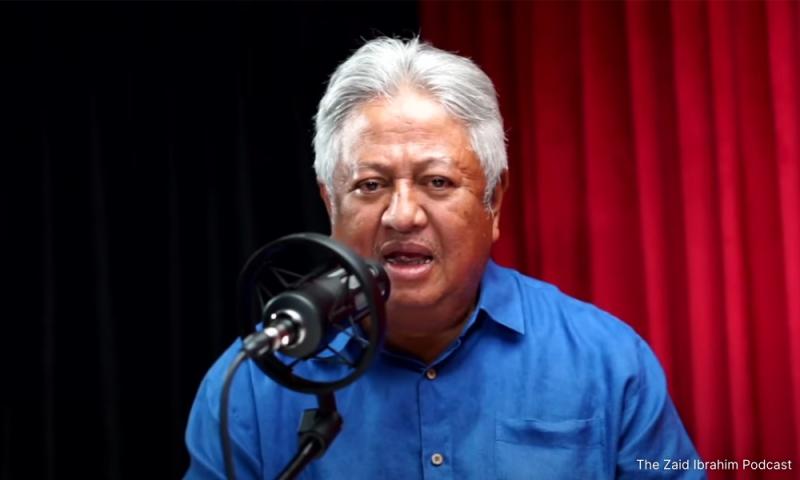It is obvious that many parents are not happy that Science and Mathematics in school will not be taught in English soon. These are the parents who realise the advantage of using English to learn the sciences. There is no doubt that using English to teach these subjects would be advantageous for all Malaysians, especially for those who have the intention to pursue tertiary education.
However, since not all teachers and students are prepared to do so, it is still a matter for debate. The blame is now on the language per se, teachers, parents and students – and the decision made on this important issue will have some political impact on the nation.
Studies have shown that over 80 percent of our teachers are not ready to teach Science and Mathematics in English despite the huge sum spent on the PPSMI (the teaching of Science and Mathematics in English) over the past years.
However, the policy did not fail for no reason. Many English-speaking students – especially those living in the urban areas with parents who can help their children and speak the language at home – have without a doubt gained a lot from this policy. But the majority of those non-English speaking students, especially in the rural areas, are completely lost for clues.
Many have abysmally failed to grasp the subject matter in a language quite difficult for them to use or master. The PPSMI policy could go on, but it may not be advantageous for the majority of our students who are execrably weak in English. For these students, their parents and teachers, the blame will always be on the English language and less on the subject matter if they cannot perform effectively in the examinations.
It is indeed a mounting task to make millions of students facing this language problem cope with the subject matter fruitfully. Despite all the debates on this issue, many educators still share the opinion that the PPSMI policy has significantly failed to make all students follow the subject matter in English.
Teachers are the best to testify to this fact, as they are the ones facing the students, not the armchair critics. Teachers have admitted to the fact that the majority of our students are not able to cope with the subjects when taught in English. Many also admit that they themselves are not prepared to teach the subjects effectively in English.
Studies have also shown that the two palpable reasons for this failure are firstly, the majority of our teachers themselves are not competent in the English language, although they are subject matter specialists. Secondly, the majority of our students are not proficient enough to understand the subject matter in English. Consequently, the combination of these two factors has made the policy a letdown.
When teachers cannot express themselves effectively while speaking or writing, they may not even be able to put their ideas across successfully, no matter how knowledgeable they are in the subject. This is one of the ‘blights’ our teachers are facing.
This hitch is not only faced at the primary school level but also occurs at the highest level of our education dowel – the universities. In other words, if we insist that English should be used to teach Science and Mathematics at the pre-tertiary level, it may help some but it may also be disadvantageous to many others. And those who are affected the most are those from the rural areas.
Literally, the majority of our students at primary school level are not equipped enough to learn the subjects in English, although studies have shown a fervent desire to learn. They aspire to do so, no doubt, but they are still intrinsically weak in English. Most of these students cannot get much help from teachers and parents either - who often have weak language skills themselves. Yet again, many are too poor to attend tuition classes for this purpose.
Some critics have assumed that students are weak in Science and Mathematics because these subjects are taught in English. Not many though, have come up to say that students are weak in these subjects, not because of the medium of language used, but because they are intrinsically weak in the subjects no matter what language is being used to teach them.
There are three possible options to overcome this sticky situation. The first one is to allow those who wish to study the subjects in English to continue doing so all the way through with the guidance of competent teachers. And for those who wish to be taught in their mother tongue, let them do so.
Therefore, every school should provide two streams under the same roof to cater for these needs, which would be the best option to please both students, parents and teachers.
The second option would be to make everyone learn the subjects in their mother tongue, at least at the primary school level. However, students may face problems when the language switch is done at the secondary level. And many parents who are English-educated may not be happy with this move.
The third and final option would be to bring back the English medium school. Let those who want to learn the subjects in English study in these schools. However, to provide an English medium school in every nook and corner of the country may not be feasible, as it is going to cost the government colossally.
With this dilemma facing the government and many parents, it could even have some impact on the voting pattern of the electorate in the next general election. And disgruntled parents who are given little choice to choose the medium used to teach these subjects may not cast their votes for the ruling coalition.




